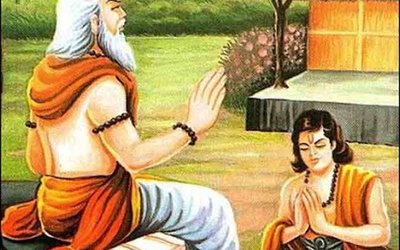
As a renowned Nepal expert, late Leo Rose, said: the foreign policy of a small country is influenced by external factors and foreign policy of a bigger country is influenced by its internal factors.
This is what one can see in Nepal and India in their foreign relations.Although Nepalese leaders have often made efforts to influence the foreign policy taking into account the internal factors, this has had only a little impact. Nepal’s foreign policy is, as usual, influenced by external factors like in the past. Prime Minister K.P. Sharma Oli’s recent swift change in his policy towards India is not an exception.
Similarly, Indian leaders also faced the internal pressure to restore the relations with Nepal following the amendment of the new constitution.
Along with opening of all transit points, just a week ahead of Prime MinisterOli’s visit to India, Nepal and India reached agreements on a number of issues including a long unsettled Gandak and Kosi projects.
The growing bilateral cooperation between Nepal and India went a notch high as the two-day meet of the Joint Committee on Kosi and Gandak Projects (JCKGP) agreed to find solutions to their areas of concern with regard to the two canal irrigation projects, including barrages across the two rivers that originate in Nepal.
The two irrigation projects are under implementation. The Indian side covers areas of Bihar and UP. Kosi and Gandak rivers originate in Nepal and end into the river Ganga. Gandak meanders through UP before entering Bihar and joining the Ganga.
They agreed to address their mutual areas of concern. The teams from India and Nepalexchanged the mutually agreed signed notes for proper follow-up actions.
“There is a major breakthrough in the bilateral talks,” said Director General of Department of Irrigation Ramanand Prasad Yadav.
Discussions veered around security and protection of the Kosi project area (KPA), operation and maintenance of KPA, royalty for supply of construction materials, erosion of flood embankments on upstream as well as downstream sides of Kosi barrage, operation of gates in the western main canal for supplying water to Kosi western main canal and maintaining full supply level in the canal and supply of construction materials from Nepal for the Kosi project facilities.
There were eight other listed items under the broad head of establishment.
They included salary, allowances and facilities for the employees, reimbursement of administrative expenditures in Kosi project, payment of land tax with respect to the two projects, unauthorized construction near Gate no. 36 of Gandak barrage, regular and proper power supply by Surajpura power house and problem due to Kosi wild life 'tappu' (island) area that falls inside the reservoir zone of Birpur barrage across Kosi.
The 10-member core Nepal team was led by director general of its department of irrigation, Ramanand Prasad Yadav, while the Indian team was led by Arun Kumar Singh, principal secretary of water resources department (WRD), Bihar. The Indian side also included representatives from ministry of external affairs and Ganga Flood Control Commission besides from UP WRD, along with DMs of West Champaran and Supaul districts of Bihar and an official representative of Maharajganj district in Uttar Pradesh.
Similarly, the ninth Nepal-India combined battalion-level military training exercise `Surya Kiran’ is underway in Pithoragarh from February 8 to 21. The Surya Kiran series of exercises is a bi-annual event which is conducted alternatively in Nepal and India. Nepalese and Indian Armies are launching joint military action following the visit of COAS General RajendraChhetri.
As PM Oliis embarkingon his India Visit 19-24 February, Nepal-India relations hasto be back on the track again.While meeting with Prime Minister K.P. Sharma Oli and President VidhyaBhandari, Indian foreign minister SushmaSwaraj and an all-party Indian delegation, who paid their visit to Nepal to pay home to late SushilKoirala, indicated the era of mistrust is over.
According to a press release issued by Ministry of Foreign Affairs, Prime Minister Oli, who is visiting India 9-24 February,will hold official talks with Prime Minister of India on matters of mutual interest during the visit.
“It is a goodwill visit and maintaining good relations with India is the key,” saidBishnuRimal, chief political adviser to Prime Minister Oli. “The visit will be focused on restoring bilateral ties.”
Interestingly, Prime MinisterOli is leaving for India on a day when Late King Tribhuwan, Rana Prime minister late Mohan Sumsher and leader of Nepali Congress returned to Nepal 66 years ago with a trip rate agreement to end autocratic rule in New Delhi.
At a time when Nepal-India relations reached an all-time low due to protests in southern plains in Nepal and India's displeasure over the new constitution promulgated in last September, the visit is being viewed with great interest.
“Don’t talks about any mistrust, PM Oli’s visit will usher a new era in Nepal-India bilateral relations,” deputy prime minister and foreign minister Kamal Thapa told New Spotlight.
The agenda for the visit is yet to be finalized. However, the prime minister himself is holding a series of meetings with former prime ministers, former foreign ministers, diplomats, business community and leaders from various political parties.
Whatever the impacts the internal environment has, external factors particularly India’s policy will have major impact on Nepal’s core foreign policy as well as internal situation.

Keshab Poudel
Poudel is the editor of New Spotlight Magazine.
- ERC Nepal Is Focused On Expanding Distribution And Transmission To The Private Sector: ERC Chair Dr. Dhital
- Jul 06, 2025
- FOURTH PROFESSOR Y.N. KHANAL LECTURE: Nepal-China Relations
- Jun 23, 2025
- Colonel JP CROSS: Centenary Birthday
- Jun 23, 2025
- BEEN: Retrofitted For Green
- May 28, 2025
- GGGI has been promoting green growth in Nepal for a decade: Dr. Malle Fofana
- May 21, 2025















